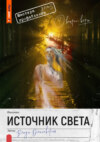Czytaj książkę: «Tales of Troy and Greece»
ULYSSES THE SACKER OF CITIES
I
THE BOYHOOD AND PARENTS OF ULYSSES
Long ago, in a little island called Ithaca, on the west coast of Greece, there lived a king named Laertes. His kingdom was small and mountainous. People used to say that Ithaca 'lay like a shield upon the sea,' which sounds as if it were a flat country. But in those times shields were very large, and rose at the middle into two peaks with a hollow between them, so that Ithaca, seen far off in the sea, with her two chief mountain peaks, and a cloven valley between them, looked exactly like a shield. The country was so rough that men kept no horses, for, at that time, people drove, standing up in little light chariots with two horses; they never rode, and there was no cavalry in battle: men fought from chariots. When Ulysses, the son of Laertes, King of Ithaca grew up, he never fought from a chariot, for he had none, but always on foot.
If there were no horses in Ithaca, there was plenty of cattle. The father of Ulysses had flocks of sheep, and herds of swine, and wild goats, deer, and hares lived in the hills and in the plains. The sea was full of fish of many sorts, which men caught with nets, and with rod and line and hook.
Thus Ithaca was a good island to live in. The summer was long, and there was hardly any winter; only a few cold weeks, and then the swallows came back, and the plains were like a garden, all covered with wild flowers – violets, lilies, narcissus, and roses. With the blue sky and the blue sea, the island was beautiful. White temples stood on the shores; and the Nymphs, a sort of fairies, had their little shrines built of stone, with wild rose-bushes hanging over them.
Other islands lay within sight, crowned with mountains, stretching away, one behind the other, into the sunset. Ulysses in the course of his life saw many rich countries, and great cities of men, but, wherever he was, his heart was always in the little isle of Ithaca, where he had learned how to row, and how to sail a boat, and how to shoot with bow and arrow, and to hunt boars and stags, and manage his hounds.
The mother of Ulysses was called Anticleia: she was the daughter of King Autolycus, who lived near Parnassus, a mountain on the mainland. This King Autolycus was the most cunning of men. He was a Master Thief, and could steal a man's pillow from under his head, but he does not seem to have been thought worse of for this. The Greeks had a God of Thieves, named Hermes, whom Autolycus worshipped, and people thought more good of his cunning tricks than harm of his dishonesty. Perhaps these tricks of his were only practised for amusement; however that may be, Ulysses became as artful as his grandfather; he was both the bravest and the most cunning of men, but Ulysses never stole things, except once, as we shall hear, from the enemy in time of war. He showed his cunning in stratagems of war, and in many strange escapes from giants and man-eaters.
Soon after Ulysses was born, his grandfather came to see his mother and father in Ithaca. He was sitting at supper when the nurse of Ulysses, whose name was Eurycleia, brought in the baby, and set him on the knees of Autolycus, saying, 'Find a name for your grandson, for he is a child of many prayers.'
'I am very angry with many men and women in the world,' said Autolycus, 'so let the child's name be A Man of Wrath,' which, in Greek, was Odysseus. So the child was called Odysseus by his own people, but the name was changed into Ulysses, and we shall call him Ulysses.
We do not know much about Ulysses when he was a little boy, except that he used to run about the garden with his father, asking questions, and begging that he might have fruit trees 'for his very own.' He was a great pet, for his parents had no other son, so his father gave him thirteen pear trees, and forty fig trees, and promised him fifty rows of vines, all covered with grapes, which he could eat when he liked, without asking leave of the gardener. So he was not tempted to steal fruit, like his grandfather.
When Autolycus gave Ulysses his name, he said that he must come to stay with him, when he was a big boy, and he would get splendid presents. Ulysses was told about this, so, when he was a tall lad, he crossed the sea and drove in his chariot to the old man's house on Mount Parnassus. Everybody welcomed him, and next day his uncles and cousins and he went out to hunt a fierce wild boar, early in the morning. Probably Ulysses took his own dog, named Argos, the best of hounds, of which we shall hear again, long afterwards, for the dog lived to be very old. Soon the hounds came on the scent of a wild boar, and after them the men went, with spears in their hands, and Ulysses ran foremost, for he was already the swiftest runner in Greece.
He came on a great boar lying in a tangled thicket of boughs and bracken, a dark place where the sun never shone, nor could the rain pierce through. Then the noise of the men's shouts and the barking of the dogs awakened the boar, and up he sprang, bristling all over his back, and with fire shining from his eyes. In rushed Ulysses first of all, with his spear raised to strike, but the boar was too quick for him, and ran in, and drove his sharp tusk sideways, ripping up the thigh of Ulysses. But the boar's tusk missed the bone, and Ulysses sent his sharp spear into the beast's right shoulder, and the spear went clean through, and the boar fell dead, with a loud cry. The uncles of Ulysses bound up his wound carefully, and sang a magical song over it, as the French soldiers wanted to do to Joan of Arc when the arrow pierced her shoulder at the siege of Orleans. Then the blood ceased to flow, and soon Ulysses was quite healed of his wound. They thought that he would be a good warrior, and gave him splendid presents, and when he went home again he told all that had happened to his father and mother, and his nurse, Eurycleia. But there was always a long white mark or scar above his left knee, and about that scar we shall hear again, many years afterwards.
II
HOW PEOPLE LIVED IN THE TIME OF ULYSSES
When Ulysses was a young man he wished to marry a princess of his own rank. Now there were at that time many kings in Greece, and you must be told how they lived. Each king had his own little kingdom, with his chief town, walled with huge walls of enormous stone. Many of these walls are still standing, though the grass has grown over the ruins of most of them, and in later years, men believed that those walls must have been built by giants, the stones are so enormous. Each king had nobles under him, rich men, and all had their palaces, each with its courtyard, and its long hall, where the fire burned in the midst, and the King and Queen sat beside it on high thrones, between the four chief carved pillars that held up the roof. The thrones were made of cedar wood and ivory, inlaid with gold, and there were many other chairs and small tables for guests, and the walls and doors were covered with bronze plates, and gold and silver, and sheets of blue glass. Sometimes they were painted with pictures of bull hunts, and a few of these pictures may still be seen. At night torches were lit, and placed in the hands of golden figures of boys, but all the smoke of fire and torches escaped by a hole in the roof, and made the ceiling black. On the walls hung swords and spears and helmets and shields, which needed to be often cleaned from the stains of the smoke. The minstrel or poet sat beside the King and Queen, and, after supper he struck his harp, and sang stories of old wars. At night the King and Queen slept in their own place, and the women in their own rooms; the princesses had their chambers upstairs, and the young princes had each his room built separate in the courtyard.
There were bath rooms with polished baths, where guests were taken when they arrived dirty from a journey. The guests lay at night on beds in the portico, for the climate was warm. There were plenty of servants, who were usually slaves taken in war, but they were very kindly treated, and were friendly with their masters. No coined money was used; people paid for things in cattle, or in weighed pieces of gold. Rich men had plenty of gold cups, and gold-hilted swords, and bracelets, and brooches. The kings were the leaders in war and judges in peace, and did sacrifices to the Gods, killing cattle and swine and sheep, on which they afterwards dined.
They dressed in a simple way, in a long smock of linen or silk, which fell almost to the feet, but was tucked up into a belt round the waist, and worn longer or shorter, as they happened to choose. Where it needed fastening at the throat, golden brooches were used, beautifully made, with safety pins. This garment was much like the plaid that the Highlanders used to wear, with its belt and brooches. Over it the Greeks wore great cloaks of woollen cloth when the weather was cold, but these they did not use in battle. They fastened their breastplates, in war, over their smocks, and had other armour covering the lower parts of the body, and leg armour called 'greaves'; while the great shield which guarded the whole body from throat to ankles was carried by a broad belt slung round the neck. The sword was worn in another belt, crossing the shield belt. They had light shoes in peace, and higher and heavier boots in war, or for walking across country.
The women wore the smock, with more brooches and jewels than the men; and had head coverings, with veils, and mantles over all, and necklaces of gold and amber, earrings, and bracelets of gold or of bronze. The colours of their dresses were various, chiefly white and purple; and, when in mourning, they wore very dark blue, not black. All the armour, and the sword blades and spearheads were made, not of steel or iron, but of bronze, a mixture of copper and tin. The shields were made of several thicknesses of leather, with a plating of bronze above; tools, such as axes and ploughshares, were either of iron or bronze; and so were the blades of knives and daggers.
To us the houses and way of living would have seemed very splendid, and also, in some ways, rather rough. The palace floors, at least in the house of Ulysses, were littered with bones and feet of the oxen slain for food, but this happened when Ulysses had been long from home. The floor of the hall in the house of Ulysses was not boarded with planks, or paved with stone: it was made of clay; for he was a poor king of small islands. The cooking was coarse: a pig or sheep was killed, roasted and eaten immediately. We never hear of boiling meat, and though people probably ate fish, we do not hear of their doing so, except when no meat could be procured. Still some people must have liked them; for in the pictures that were painted or cut in precious stones in these times we see the half-naked fisherman walking home, carrying large fish.
The people were wonderful workers of gold and bronze. Hundreds of their golden jewels have been found in their graves, but probably these were made and buried two or three centuries before the time of Ulysses. The dagger blades had pictures of fights with lions, and of flowers, inlaid on them, in gold of various colours, and in silver; nothing so beautiful is made now. There are figures of men hunting bulls on some of the gold cups, and these are wonderfully life-like. The vases and pots of earthenware were painted in charming patterns: in short, it was a splendid world to live in.
The people believed in many Gods, male and female, under the chief God, Zeus. The Gods were thought to be taller than men, and immortal, and to live in much the same way as men did, eating, drinking, and sleeping in glorious palaces. Though they were supposed to reward good men, and to punish people who broke their oaths and were unkind to strangers, there were many stories told in which the Gods were fickle, cruel, selfish, and set very bad examples to men. How far these stories were believed is not sure; it is certain that 'all men felt a need of the Gods,' and thought that they were pleased by good actions and displeased by evil. Yet, when a man felt that his behaviour had been bad, he often threw the blame on the Gods, and said that they had misled him, which really meant no more than that 'he could not help it.'
There was a curious custom by which the princes bought wives from the fathers of the princesses, giving cattle and gold, and bronze and iron, but sometimes a prince got a wife as the reward for some very brave action. A man would not give his daughter to a wooer whom she did not love, even if he offered the highest price, at least this must have been the general rule, for husbands and wives were very fond of each other, and of their children, and husbands always allowed their wives to rule the house, and give their advice on everything. It was thought a very wicked thing for a woman to like another man better than her husband, and there were few such wives, but among them was the most beautiful woman who ever lived.
III
THE WOOING OF HELEN OF THE FAIR HANDS
This was the way in which people lived when Ulysses was young, and wished to be married. The worst thing in the way of life was that the greatest and most beautiful princesses might be taken prisoners, and carried off as slaves to the towns of the men who had killed their fathers and husbands. Now at that time one lady was far the fairest in the world: namely, Helen, daughter of King Tyndarus. Every young prince heard of her and desired to marry her; so her father invited them all to his palace, and entertained them, and found out what they would give. Among the rest Ulysses went, but his father had a little kingdom, a rough island, with others near it, and Ulysses had not a good chance. He was not tall; though very strong and active, he was a short man with broad shoulders, but his face was handsome, and, like all the princes, he wore long yellow hair, clustering like a hyacinth flower. His manner was rather hesitating, and he seemed to speak very slowly at first, though afterwards his words came freely. He was good at everything a man can do; he could plough, and build houses, and make ships, and he was the best archer in Greece, except one, and could bend the great bow of a dead king, Eurytus, which no other man could string. But he had no horses, and had no great train of followers; and, in short, neither Helen nor her father thought of choosing Ulysses for her husband out of so many tall, handsome young princes, glittering with gold ornaments. Still, Helen was very kind to Ulysses, and there was great friendship between them, which was fortunate for her in the end.
Tyndarus first made all the princes take an oath that they would stand by the prince whom he chose, and would fight for him in all his quarrels. Then he named for her husband Menelaus, King of Lacedaemon. He was a very brave man, but not one of the strongest; he was not such a fighter as the gigantic Aias, the tallest and strongest of men; or as Diomede, the friend of Ulysses; or as his own brother, Agamemnon, the King of the rich city of Mycenae, who was chief over all other princes, and general of the whole army in war. The great lions carved in stone that seemed to guard his city are still standing above the gate through which Agamemnon used to drive his chariot.
The man who proved to be the best fighter of all, Achilles, was not among the lovers of Helen, for he was still a boy, and his mother, Thetis of the silver feet, a goddess of the sea, had sent him to be brought up as a girl, among the daughters of Lycomedes of Scyros, in an island far away. Thetis did this because Achilles was her only child, and there was a prophecy that, if he went to the wars, he would win the greatest glory, but die very young, and never see his mother again. She thought that if war broke out he would not be found hiding in girl's dress, among girls, far away.
So at last, after thinking over the matter for long, Tyndarus gave fair Helen to Menelaus, the rich King of Lacedaemon; and her twin sister Clytaemnestra, who was also very beautiful, was given to King Agamemnon, the chief over all the princes. They all lived very happily together at first, but not for long.
In the meantime King Tyndarus spoke to his brother Icarius, who had a daughter named Penelope. She also was very pretty, but not nearly so beautiful as her cousin, fair Helen, and we know that Penelope was not very fond of her cousin. Icarius, admiring the strength and wisdom of Ulysses, gave him his daughter Penelope to be his wife, and Ulysses loved her very dearly, no man and wife were ever dearer to each other. They went away together to rocky Ithaca, and perhaps Penelope was not sorry that a wide sea lay between her home and that of Helen; for Helen was not only the fairest woman that ever lived in the world, but she was so kind and gracious and charming that no man could see her without loving her. When she was only a child, the famous prince Theseus, whose story is to be told later, carried her away to his own city of Athens, meaning to marry her when she grew up, and, even at that time, there was a war for her sake, for her brothers followed Theseus with an army, and fought him, and brought her home.
She had fairy gifts: for instance, she had a great red jewel, called 'the Star,' and when she wore it red drops seemed to fall from it and vanished before they touched and stained her white breast – so white that people called her 'the Daughter of the Swan.' She could speak in the very voice of any man or woman, so folk also named her Echo, and it was believed that she could neither grow old nor die, but would at last pass away to the Elysian plain and the world's end, where life is easiest for men. No snow comes thither, nor great storm, nor any rain; but always the river of Ocean that rings round the whole earth sends forth the west wind to blow cool on the people of King Rhadamanthus of the fair hair. These were some of the stories that men told of fair Helen, but Ulysses was never sorry that he had not the fortune to marry her, so fond he was of her cousin, his wife, Penelope, who was very wise and good.
When Ulysses brought his wife home they lived, as the custom was, in the palace of his father, King Laertes, but Ulysses, with his own hands, built a chamber for Penelope and himself. There grew a great olive tree in the inner court of the palace, and its stem was as large as one of the tall carved pillars of the hall. Round about this tree Ulysses built the chamber, and finished it with close-set stones, and roofed it over, and made close-fastening doors. Then he cut off all the branches of the olive tree, and smoothed the trunk, and shaped it into the bed-post, and made the bedstead beautiful with inlaid work of gold and silver and ivory. There was no such bed in Greece, and no man could move it from its place, and this bed comes again into the story, at the very end.
Now time went by, and Ulysses and Penelope had one son called Telemachus; and Eurycleia, who had been his father's nurse, took care of him. They were all very happy, and lived in peace in rocky Ithaca, and Ulysses looked after his lands, and flocks, and herds, and went hunting with his dog Argos, the swiftest of hounds.
IV
THE STEALING OF HELEN
This happy time did not last long, and Telemachus was still a baby, when war arose, so great and mighty and marvellous as had never been known in the world. Far across the sea that lies on the east of Greece, there dwelt the rich King Priam. His town was called Troy, or Ilios, and it stood on a hill near the seashore, where are the straits of Hellespont, between Europe and Asia; it was a great city surrounded by strong walls, and its ruins are still standing. The kings could make merchants who passed through the straits pay toll to them, and they had allies in Thrace, a part of Europe opposite Troy, and Priam was chief of all princes on his side of the sea, as Agamemnon was chief king in Greece. Priam had many beautiful things; he had a vine made of gold, with golden leaves and clusters, and he had the swiftest horses, and many strong and brave sons; the strongest and bravest was named Hector, and the youngest and most beautiful was named Paris.
There was a prophecy that Priam's wife would give birth to a burning torch, so, when Paris was born, Priam sent a servant to carry the baby into a wild wood on Mount Ida, and leave him to die or be eaten by wolves and wild cats. The servant left the child, but a shepherd found him, and brought him up as his own son. The boy became as beautiful, for a boy, as Helen was for a girl, and was the best runner, and hunter, and archer among the country people. He was loved by the beautiful Œnone, a nymph – that is, a kind of fairy – who dwelt in a cave among the woods of Ida. The Greeks and Trojans believed in these days that such fair nymphs haunted all beautiful woodland places, and the mountains, and wells, and had crystal palaces, like mermaids, beneath the waves of the sea. These fairies were not mischievous, but gentle and kind. Sometimes they married mortal men, and Œnone was the bride of Paris, and hoped to keep him for her own all the days of his life.
It was believed that she had the magical power of healing wounded men, however sorely they were hurt. Paris and Œnone lived most happily together in the forest; but one day, when the servants of Priam had driven off a beautiful bull that was in the herd of Paris, he left the hills to seek it, and came into the town of Troy. His mother, Hecuba, saw him, and looking at him closely, perceived that he wore a ring which she had tied round her baby's neck when he was taken away from her soon after his birth. Then Hecuba, beholding him so beautiful, and knowing him to be her son, wept for joy, and they all forgot the prophecy that he would be a burning torch of fire, and Priam gave him a house like those of his brothers, the Trojan princes.
The fame of beautiful Helen reached Troy, and Paris quite forgot unhappy Œnone, and must needs go to see Helen for himself. Perhaps he meant to try to win her for his wife, before her marriage. But sailing was little understood in these times, and the water was wide, and men were often driven for years out of their course, to Egypt, and Africa, and far away into the unknown seas, where fairies lived in enchanted islands, and cannibals dwelt in caves of the hills.
Paris came much too late to have a chance of marrying Helen; however, he was determined to see her, and he made his way to her palace beneath the mountain Taygetus, beside the clear swift river Eurotas. The servants came out of the hall when they heard the sound of wheels and horses' feet, and some of them took the horses to the stables, and tilted the chariots against the gateway, while others led Paris into the hall, which shone like the sun with gold and silver. Then Paris and his companions were led to the baths, where they were bathed, and clad in new clothes, mantles of white, and robes of purple, and next they were brought before King Menelaus, and he welcomed them kindly, and meat was set before them, and wine in cups of gold. While they were talking, Helen came forth from her fragrant chamber, like a Goddess, her maidens following her, and carrying for her an ivory distaff with violet-coloured wool, which she span as she sat, and heard Paris tell how far he had travelled to see her who was so famous for her beauty even in countries far away.
Then Paris knew that he had never seen, and never could see, a lady so lovely and gracious as Helen as she sat and span, while the red drops fell and vanished from the ruby called the Star; and Helen knew that among all the princes in the world there was none so beautiful as Paris. Now some say that Paris, by art magic, put on the appearance of Menelaus, and asked Helen to come sailing with him, and that she, thinking he was her husband, followed him, and he carried her across the wide waters of Troy, away from her lord and her one beautiful little daughter, the child Hermione. And others say that the Gods carried Helen herself off to Egypt, and that they made in her likeness a beautiful ghost, out of flowers and sunset clouds, whom Paris bore to Troy, and this they did to cause war between Greeks and Trojans. Another story is that Helen and her bower maiden and her jewels were seized by force, when Menelaus was out hunting. It is only certain that Paris and Helen did cross the seas together, and that Menelaus and little Hermione were left alone in the melancholy palace beside the Eurotas. Penelope, we know for certain, made no excuses for her beautiful cousin, but hated her as the cause of her own sorrows and of the deaths of thousands of men in war, for all the Greek princes were bound by their oath to fight for Menelaus against any one who injured him and stole his wife away. But Helen was very unhappy in Troy, and blamed herself as bitterly as all the other women blamed her, and most of all Œnone, who had been the love of Paris. The men were much more kind to Helen, and were determined to fight to the death rather than lose the sight of her beauty among them.
The news of the dishonour done to Menelaus and to all the princes of Greece ran through the country like fire through a forest. East and west and south and north went the news: to kings in their castles on the hills, and beside the rivers and on cliffs above the sea. The cry came to ancient Nestor of the white beard at Pylos, Nestor who had reigned over two generations of men, who had fought against the wild folk of the hills, and remembered the strong Heracles, and Eurytus of the black bow that sang before the day of battle.
The cry came to black-bearded Agamemnon, in his strong town called 'golden Mycenae,' because it was so rich; it came to the people in Thisbe, where the wild doves haunt; and it came to rocky Pytho, where is the sacred temple of Apollo and the maid who prophesies. It came to Aias, the tallest and strongest of men, in his little isle of Salamis; and to Diomede of the loud war-cry, the bravest of warriors, who held Argos and Tiryns of the black walls of huge stones, that are still standing. The summons came to the western islands and to Ulysses in Ithaca, and even far south to the great island of Crete of the hundred cities, where Idomeneus ruled in Cnossos; Idomeneus, whose ruined palace may still be seen with the throne of the king, and pictures painted on the walls, and the King's own draught-board of gold and silver, and hundreds of tablets of clay, on which are written the lists of royal treasures. Far north went the news to Pelasgian Argos, and Hellas, where the people of Peleus dwelt, the Myrmidons; but Peleus was too old to fight, and his boy, Achilles, dwelt far away, in the island of Scyros, dressed as a girl, among the daughters of King Lycomedes. To many another town and to a hundred islands went the bitter news of approaching war, for all princes knew that their honour and their oaths compelled them to gather their spearmen, and bowmen, and slingers from the fields and the fishing, and to make ready their ships, and meet King Agamemnon in the harbour of Aulis, and cross the wide sea to besiege Troy town.
Now the story is told that Ulysses was very unwilling to leave his island and his wife Penelope, and little Telemachus; while Penelope had no wish that he should pass into danger, and into the sight of Helen of the fair hands. So it is said that when two of the princes came to summon Ulysses, he pretended to be mad, and went ploughing the sea sand with oxen, and sowing the sand with salt. Then the prince Palamedes took the baby Telemachus from the arms of his nurse, Eurycleia, and laid him in the line of the furrow, where the ploughshare would strike him and kill him. But Ulysses turned the plough aside, and they cried that he was not mad, but sane, and he must keep his oath, and join the fleet at Aulis, a long voyage for him to sail, round the stormy southern Cape of Maleia.
Whether this tale be true or not, Ulysses did go, leading twelve black ships, with high beaks painted red at prow and stern. The ships had oars, and the warriors manned the oars, to row when there was no wind. There was a small raised deck at each end of the ships; on these decks men stood to fight with sword and spear when there was a battle at sea. Each ship had but one mast, with a broad lugger sail, and for anchors they had only heavy stones attached to cables. They generally landed at night, and slept on the shore of one of the many islands, when they could, for they greatly feared to sail out of sight of land.
The fleet consisted of more than a thousand ships, each with fifty warriors, so the army was of more than fifty thousand men. Agamemnon had a hundred ships, Diomede had eighty, Nestor had ninety, the Cretans with Idomeneus, had eighty, Menelaus had sixty; but Aias and Ulysses, who lived in small islands, had only twelve ships apiece. Yet Aias was so brave and strong, and Ulysses so brave and wise, that they were ranked among the greatest chiefs and advisers of Agamemnon, with Menelaus, Diomede, Idomeneus, Nestor, Menestheus of Athens, and two or three others. These chiefs were called the Council, and gave advice to Agamemnon, who was commander-in-chief. He was a brave fighter, but so anxious and fearful of losing the lives of his soldiers that Ulysses and Diomede were often obliged to speak to him very severely. Agamemnon was also very insolent and greedy, though, when anybody stood up to him, he was ready to apologise, for fear the injured chief should renounce his service and take away his soldiers.
Nestor was much respected because he remained brave, though he was too old to be very useful in battle. He generally tried to make peace when the princes quarrelled with Agamemnon. He loved to tell long stories about his great deeds when he was young, and he wished the chiefs to fight in old-fashioned ways.













![XXXII Ballades in Blue China [1885]](https://cdn.litres.ru/pub/c/cover_100/25230660.jpg)






